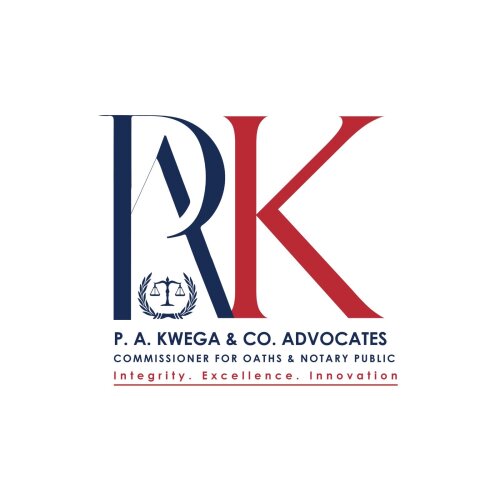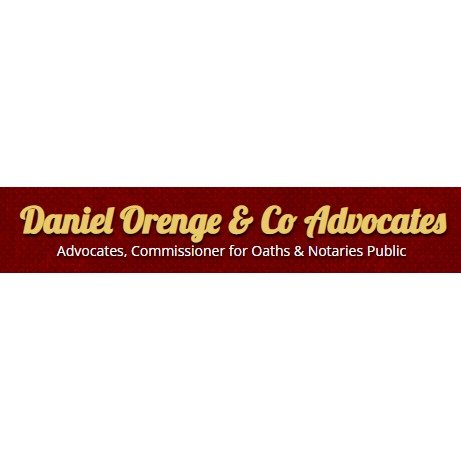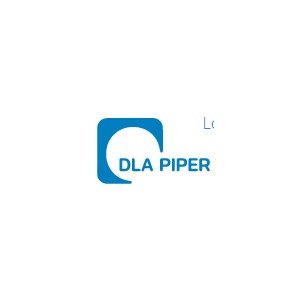Best Conveyancing Lawyers in Nairobi
Share your needs with us, get contacted by law firms.
Free. Takes 2 min.
Free Guide to Hiring a Real Estate Lawyer
List of the best lawyers in Nairobi, Kenya
Legal guides written by Adroit Law LLP:
- Kenya Launches Digital Nomad Visa: A Gateway for Remote Workers
- Navigating the Payment System License Maze in Kenya
- Navigating the Complexities of Mining Licenses and Permits in Kenya: A Look into Artisanal and Large-Scale Operations
About Conveyancing Law in Nairobi, Kenya
Conveyancing in Nairobi, Kenya, refers to the legal process of transferring property ownership from one person or entity to another. It involves the preparation, execution, and registration of documents such as sale agreements, transfers, and titles. The process is guided by various statutes and is a crucial aspect of real estate transactions because it ensures that the buyer obtains lawful ownership and the seller successfully transfers all interests in the property. Whether you are purchasing land, a house, or a commercial property, understanding the conveyancing process is essential to safeguard your interests and comply with Kenyan laws.
Why You May Need a Lawyer
Property transactions in Nairobi can be complex, and hiring a qualified conveyancing lawyer is important to ensure your investment is legally sound. You may require legal assistance for reasons such as:
- Verifying the authenticity of property titles and checking for encumbrances
- Negotiating and drafting sale agreements that protect your interests
- Ensuring compliance with planning and zoning laws
- Handling the payment of stamp duty and other statutory fees
- Managing property transfers in cases involving inheritance, gifts, or company shares
- Resolving disputes over boundaries, co-ownership, or previous liens
- Registering property transactions at the Nairobi Land Registry
Engaging a lawyer can save time, prevent fraud, and ensure your transaction aligns with the law.
Local Laws Overview
Conveyancing in Nairobi is governed by several key statutes and regulations. The primary laws and regulations include:
- The Land Act, 2012 which outlines the general principles of land ownership, transfer, and administration in Kenya
- The Land Registration Act, 2012 which regulates the registration of land and property rights
- The Law of Contract Act which requires that property sale agreements be in writing
- The Stamp Duty Act which provides for the assessment and payment of duty on property transfers
- Local authority by-laws and the Nairobi City County planning regulations which may affect land use and development
Conveyancing must also consider the property’s legal status, such as whether it is freehold or leasehold, and any outstanding rates or statutory payments.
Frequently Asked Questions
What is the first step in the conveyancing process in Nairobi?
The first step is to conduct due diligence by carrying out a search at the Lands Registry and the relevant local authority to confirm property ownership, check for encumbrances, and verify the seller’s authority to transfer the property.
How long does conveyancing take in Nairobi?
The process typically takes between 30 to 90 days, depending on the complexity of the transaction, promptness in providing required documents, and the efficiency of the Lands Registry.
What documents are required during conveyancing?
Key documents include the title deed, land search results, a signed sale agreement, land rates clearance certificate, updated land rent clearance certificate (for leasehold), consent to transfer (where applicable), and the stamped transfer forms.
What is a land search and why is it important?
A land search is an official investigation at the Lands Registry that confirms ownership, reveals any encumbrances such as mortgages or caveats, and ensures the property is suitable for transfer. It helps prevent fraudulent transactions.
Who pays the stamp duty in property transactions?
Generally, the buyer pays stamp duty, which is a government tax charged on all property transfers, calculated as a percentage of the property value.
How can I avoid property fraud in Nairobi?
Avoid property fraud by working with a registered conveyancing lawyer, conducting due diligence, ensuring all payments are made through traceable methods, and confirming that documents are properly registered and stamped.
Can foreigners buy property in Nairobi?
Foreigners can buy property in Nairobi but are restricted from owning freehold land outside urban areas. Most foreign purchases are of leasehold properties, subject to approval by the relevant authorities.
What happens if there is a dispute during the conveyancing process?
Disputes can be resolved through negotiation, mediation, or by seeking redress in court. Engaging a lawyer can help settle disputes efficiently and lawfully.
Are verbal property sale agreements valid in Nairobi?
No. The Law of Contract Act requires property sale agreements to be in writing and signed by both parties, witnessed, and properly stamped for them to be legally binding.
How do I verify the legitimacy of a conveyancing lawyer?
Ensure your lawyer is licensed to practice in Kenya by confirming their credentials with the Law Society of Kenya or checking their valid practicing certificate status.
Additional Resources
To further assist, consider these helpful resources and organizations:
- Ministry of Lands and Physical Planning - For land records, registrations, and guidelines
- Nairobi Land Registry - For conducting property searches and registering property transfers
- Law Society of Kenya - For verifying lawyer credentials and getting referrals
- Kenya Revenue Authority - For information on stamp duty and tax obligations
- National Land Commission - For information on public land and land policy matters
Next Steps
If you need legal assistance in conveyancing, follow these steps:
- Gather all property-related documents you hold, including copies of the title, lease, and any previous agreements.
- Contact a licensed conveyancing lawyer in Nairobi who can guide you through the process and help with due diligence, drafting agreements, and registration.
- Work with your lawyer to conduct property searches, verify ownership, and identify any legal or financial issues with the property.
- Ensure all agreements are clearly written, reviewed, and signed in the presence of your legal representatives.
- Settle all statutory fees such as stamp duty and ensure the property transfer is registered at the appropriate land office.
- Keep copies of all signed and registered documents for your records.
Conveyancing is a significant legal and financial process. Professional guidance ensures your investment is secure and complies with the law in Nairobi, Kenya.
Lawzana helps you find the best lawyers and law firms in Nairobi through a curated and pre-screened list of qualified legal professionals. Our platform offers rankings and detailed profiles of attorneys and law firms, allowing you to compare based on practice areas, including Conveyancing, experience, and client feedback.
Each profile includes a description of the firm's areas of practice, client reviews, team members and partners, year of establishment, spoken languages, office locations, contact information, social media presence, and any published articles or resources. Most firms on our platform speak English and are experienced in both local and international legal matters.
Get a quote from top-rated law firms in Nairobi, Kenya — quickly, securely, and without unnecessary hassle.
Disclaimer:
The information provided on this page is for general informational purposes only and does not constitute legal advice. While we strive to ensure the accuracy and relevance of the content, legal information may change over time, and interpretations of the law can vary. You should always consult with a qualified legal professional for advice specific to your situation.
We disclaim all liability for actions taken or not taken based on the content of this page. If you believe any information is incorrect or outdated, please contact us, and we will review and update it where appropriate.

















